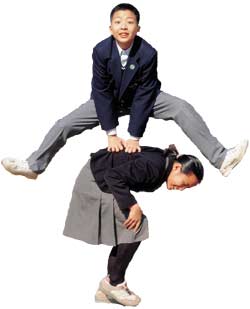Trusting Your Children to Play

I have mentioned before, that I have had several pivotal experiences in our home schooling journey. Experiences where the light bulb came on for me in lasting ways. For me, one of those experiences, was a Washington State Home Schooling Convention where the keynote speaker was Pat Montgomery. Her talk was peppered with observations about childhood development concepts and it sounded to me like she knew what she was talking about. Two comments that she made have stuck with me all these years.
As I remember, at one point she said, “The work of a child is play.” She spoke of the developmental stages of the brains of our children and what these brains were ready to learn at various stages of development. All of this was over my head and out of my league. But, the point was that learning by doing and trying and experimenting and moving about, from ages 1-12 fit the developmental stages of a child’s brain more naturally than “sit-down” cognitive learning, involving concepts and ideas. Especially when it comes to boys.
This idea hit home for me. I just believed it. Reading to the children each day combined with lots of moving about activities, field trips, exploration trips, was enough, more than enough actually. At a certain point, when it was necessary, they would catch up quickly, in fact at light speed. It made sense to me, because I had already seen this happen with my own children, Allison with Math and David with bike riding and reading. Both were held off and didn’t follow the “publicly accepted curriculum deadlines. Both, when the time came, attacked these delayed topics in a natural way and moved through them like a hot knife through butter. Actually I think this is more self evident that we often realize. All of us learn things faster when we are motivated or want to learn them. In other words, when the timing is right, when we reach the point where we WANT to learn for our own good reasons, we blow through the material like lightning.

Then came the next power idea, a statement she made to a parent who was concerned because her son was 6 and not reading to school standards. Pat said, “You can teach a monkey to read, but it doesn’t mean it is good for the monkey.” In other words, forcing the learning when the mind and emotions are not developed to the point to accept it, can do more harm for the child than good. While it may make the parent feel vindicated/proud to tell friends that Johnny is already reading at age 5, it may not be in the best interests of the child. This made total sense to me, as well. Forcing the issue, any educational issue, before it’s time, can create more problems that it is worth. (The problems associated with not trusting and forcing educational objectives upon our children is a topic, a large topic for another day.)
Taking these ideas together, we grew gradually into the idea of trusting our children. We learned to trust them that they would respond to this approach over time. We learned to trust them, that given time they would pass through the boredom stage. We learned to trust them that they would eventually get used to all the freedom of this approach. We learned to trust the children that when it comes time to “catch up” so that college and other forms of higher education are possible, they would and at light speed. We learned to trust them.
Again, a reminder, at age 12, give or take a few years, and taking the gender of the kids into consideration, things can and do change. Educational expectations do become more formal, and more regimented. By then however, both parents and children are so accustomed to learning while having fun, that it is hard to imagine a purely cognitive approach ever being part of the picture.
For parents, it is an act of faith to trust in these things, until they see it happen the first time, As Cyndy says, “For parents with only one child, they just don’t want to experiment when they’ve only got one chance.” But, as in all acts of faith, you receive a witness of it after the trial, not before. There is more going on when our children play and learn things experientially than we think. There is more to the idea of natural timing associated with learning than we think. Perhaps, the problem really is, that instead of trusting, we as parents think instead of trust, too much.
Next Week: Can I do it?





